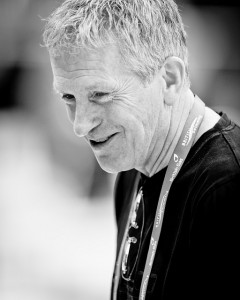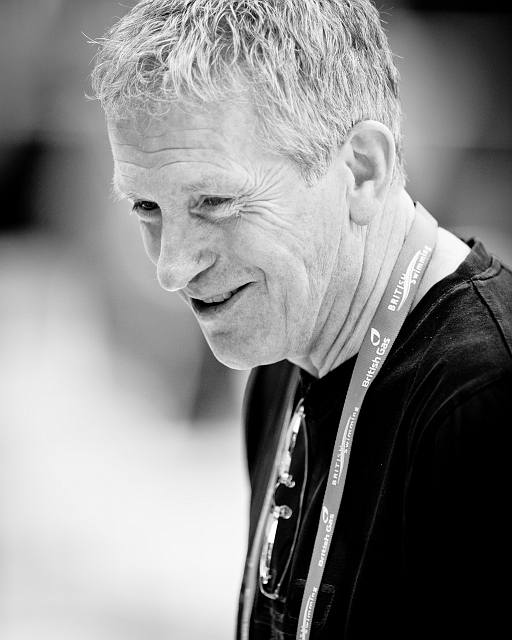
“Buy in or buy out” – that was the thrust of the message as Bill Furniss outlined his plans for British Swimming over the three years to Rio to an audience of coaches at the BSCA annual conference. They were told that performance will be rewarded, while mediocrity will not be tolerated as the work to avoid a repeat of Britain’s London disappointment begins.
The 8 months post Olympics were, as Furniss put it, “rudderless” with the loss of the head coach, performance director and the delay in recruiting replacements, but the new programme is now taking shape and the new team now able to influence events rather than dealing with the fait accompli they faced when taking on the role in March of this year.
Looking back at 2013, the view is decidedly mixed. Trials were “not fit for purpose” and if short trials of 5 or 6 days are to be held, the indication was that semi-finals would be done away with to try and encourage faster morning swimming. The timing though remains under review , with no commitment made to the date of trials in 2015, but they will almost certainly not be at Ponds Forge. A small team will be sent to the European Championship 4 weeks after the Commonwealth Games next year to gain further experience of the double taper, with that squad expected to leave Glasgow as soon as the swimming is done to return to training in preparation for Berlin.
In terms of Barcelona, the old bugbear of turns was raised again with Furniss noting that Britain’s turns were “weak” by comparison with other nations and in particularly the medal winners while many swims were “tactically inept”. Meanwhile it was accepted that the distance swimmers in particular suffered with the short turn around from trials to the meet. In future, late trials will come with adjusted selection criteria for distance swimmers to avoid this issue, the suggestion being that qualifying times will not be so tough and the emphasis instead being on racing and places at trials.
In future, as has been hinted at previously, there will be a requirement for swimmers to race more, including a nationally directed race programme, with swimmers expected to both race tired and to race more internationally, but to race with clear tactics. June will, for 2014 at least, be a racing month, with swimmers sent to the Mare Nostrum series and then to a British preparation meet that will feature morning finals, to race while in training.
One key aim is converting Britain’s excellent performances at junior levels when those athletes become seniors. Britain is, for example, much stronger than France at European Junior level, but the tables are turned when it comes to the big pool. Nowhere was this clearer than in relays, where the junior squads produce excellence and the seniors can’t match the level of performance, Furniss being “confused” over this conundrum.
Furniss will of course have a tight ship to run, what with the funding cuts suffered by British swimming since London, and that in turn will be reflected in how the limited budget is allocated with value for money being paramount. Decisions will in future be based purely on performance, for example on team size. The message was clear that we should expect smaller British teams until performances can justify a larger squad. Meanwhile individual funding will be based, at least in part, on progression towards predicted medal winning times in Rio, with added weight given to performances at the benchmark meet and not just season’s bests.
Despite this funding limit though, there will be a return of national event camps, the first round of which finished last week, while a coaches “Olympic Focus” weekend will look to share best practice and experience gained amongst Britain’s elite coaches.
A benchmark has been set in 2013, and a “solid foundation” is now in place. Furniss has mapped out his route to Rio, he just needs coaches and swimmers to follow him. The evidence so far is that they will and there will be more buying in than out.

